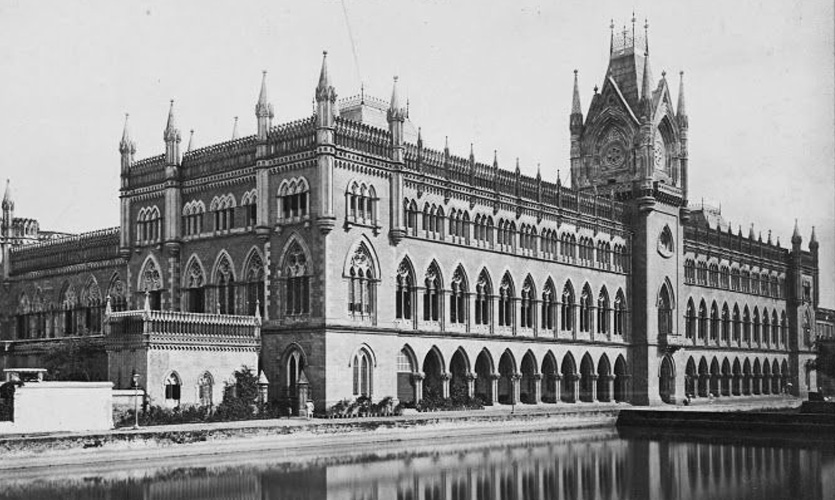It’s a well-known fact that the British made radical laws while in India, many of which were used to crush the voices of people speaking against the ruling dispensation at the time.
The purpose of these laws was to exploit the resources and the people of India. 74 years down the line, many laws and systems made during the colonial era are still prevalent in our country.
Many of these laws have lost their significance in time, but still hold the possibility of being used by the government when they wish to crush the voices of the common man.
Here are five colonial laws that are still a part of our legal system:
Sedition Law
Section 124A of the Indian Penal Code (IPC), also known as the Sedition Law is one of the most controversial laws in India that has the potential to suppress freedom of speech and expression. The law carries severe punishments of life imprisonment and arrest without notice.
The colonial law was first introduced in India in 1870 under the British Raj to curtail people’s voices and crush the freedom struggle.
Freedom fighter Bal Gangadhar Tilak was among the first arrested under the sedition law. He was arrested in 1897 for his anti-British government article in the Marathi newspaper Kesari. Mahatma Gandhi, Jawaharlal Nehru and Bhagat Singh were also arrested under this law.
The law is still used in India, however, the UK abolished it in 2009. India dropped the word ‘sedition’ from its constitution in 1948, but section 124A remained a part of the Indian Penal Code. The country has seen blatant misuse of section 124A, which is a non-bailable offence.
Recently, during a hearing on the constitutional validity of the sedition law, the Chief Justice of India, N.V. Ramana expressed concern over the “misuse” of the sedition law in India. He asked the government’s representative – Attorney General K.K. Venugopal – whether India still needed it after 75 years of independence.
“It’s a colonial law. It was meant to suppress the freedom movement. The same law was used by the British to silence Mahatma Gandhi, Tilak etc. Still, is it necessary after 75 years of independence?” the CJI asked Venugopal.
Blasphemy Law
The Indian constitution does not carry the word “blasphemy”, but cruel punishment has been mandated for hurting religious sentiments under Section 295A of the IPC.
The British law was first introduced in 1927 by the Raj, who made this law to punish those who insult religions and religious beliefs. Under Section 295A, any act to outrage the religious feelings of any class of the citizens of India will be considered an offence.
Many experts believe that 295A contradicts Article 19 that provides basic fundamental rights like freedom of speech and expression.
The UK scrapped the blasphemy law in 2008. At the time, it stated that the blasphemy law does not suit any modern society as it’s against the freedom of expression.
Unlawful Assembly
The law was first introduced in India by the colonial government in order to crackdown against the anti-British government protesters and to prevent riots.
Unlawful assembly has been defined under Section 141 of the IPC as an assembly of “five or more persons having a common object” to perform an omission or offence. The punishments, consequences and circumstances of unlawful assembly and being a member of it have been defined from section 141 through 144.
The government has been accused of misusing the various sections pertaining to unlawful assembly on several occasions for preventing protests and peaceful gatherings. The Centre and the state governments often impose these to clamp down on the protests against them in the name of social order. In 2019, the Yogi Adityanath-led UP government used Section 144 in some parts of the state to take action against the CAA-NRC protesters, ordered the arrests of hundreds of agitators, and served notices to thousands of people.
Unlawful Activities (Prevention) Act
The Indira Gandhi government introduced the Unlawful Activities (Prevention) Act (UAPA) in 1967, which is now being rampantly used on dissenters.
The Act aimed to prevent activities endangering the sovereignty and integrity of the nation. However, in August 2019, the Act became more troubling when the Modi-led government made an amendment and gave more power to the National Investigative Agency.
Now, under the UAPA, organisations as well as individuals can be declared terrorists if they are found indulging in suspicious activities. Along with this, the property of that person can also be confiscated. The custodial death of activist Stan Swamy is the most recent and terrifying example of this Act.
According to NCRB data, the country has seen more than 72 percent increase in persons arrested under the UAPA in 2019.
Police Act
Over the past several years, there has been significant debate on whether India needs urgent police reforms. Many experts and police reforms-related recommendation reports say that it’s time to scrap the 160-year-old Police Act, 1861 that was implemented by the colonial regime in the hindsight of the 1857 revolt against the British Raj.
According to the India Justice Report of 2020 by the Tata Trust, we must revamp the Police Act to eliminate arbitrary arrests, fake encounters, and death by torture in police custody.










